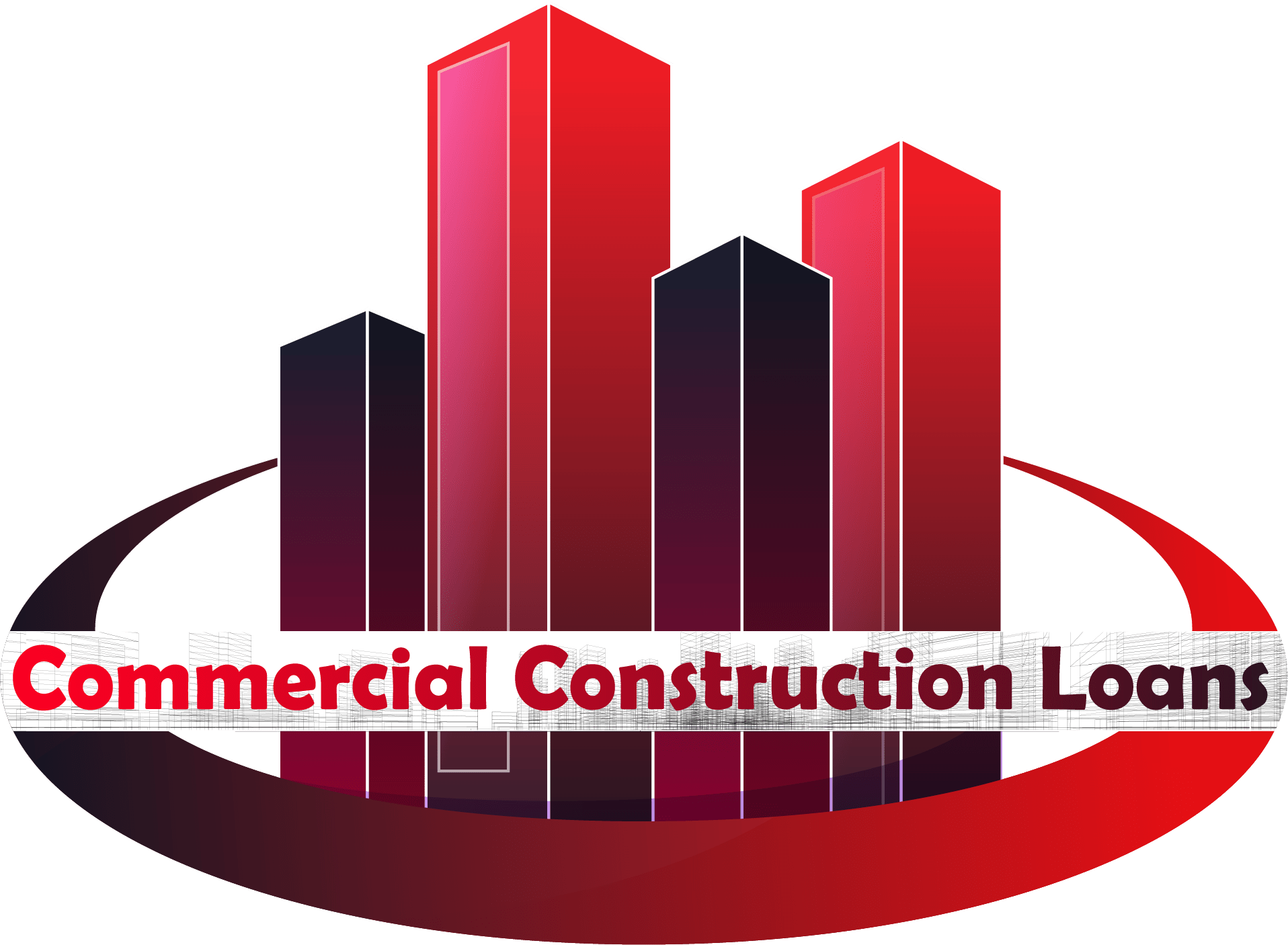A strong credit score is the key to turning your vision for a new commercial space into reality. Securing financing for construction projects requires lenders to assess your creditworthiness, and a healthy credit score is a critical factor in their decision.
Here at CommercialConstructionLoans.net, we understand the significance of navigating the financial hurdles of commercial construction. We offer a comprehensive suite of services to guide you through the loan application process, ensuring you present the most attractive profile to potential lenders.
Credit Score: Your Gateway to Financial Opportunities

Your credit score is a three-digit number that acts like a financial report card, summarizing your history of managing borrowed money. It tells lenders how likely you are to repay a loan on time and in full. This score significantly impacts various financial decisions, playing a pivotal role in:
Loan approvals: A high credit score increases your chances of getting approved for loans, including commercial construction loans.
Interest rates: The better your credit score, the lower the interest rate you’ll likely qualify for, saving you significant money over the loan term.
Insurance rates: Some insurance companies consider your credit score when determining your rates, with a higher score potentially leading to lower premiums.
Rental applications: Landlords often check credit scores to assess your reliability as a tenant.
Here’s a deeper dive into the factors that influence your credit score:
Payment history (35%): This is the most critical factor. Consistent, on-time payments for credit cards, loans, and utilities positively impact your score. In contrast, late payments significantly drag it down.
Credit utilization (30%): This refers to the amount of credit you use compared to your total credit limit. Keeping your credit utilization ratio low (ideally below 30%) demonstrates responsible credit management.
Credit history length (15%): A more extended credit history with a proven track record of responsible borrowing generally benefits your score.
Credit mix (10%): Having various credit accounts, such as credit cards and installment loans (mortgages, car loans), shows lenders you can handle different types of credit responsibly.
New credit inquiries (10%): Frequent applications for new credit cards or loans can negatively impact your score, as lenders may perceive you as overextending yourself financially.
Why Your Credit Score is the Bedrock of Your Construction Loan

For lenders considering your commercial construction loan application, your credit score is a beacon at night, guiding them in assessing the risk involved. Here’s how your credit score plays a pivotal role in the loan process:
Risk Assessment Tool
Lenders view your credit score as a reliable indicator of your financial responsibility. A high score signifies a lower risk of defaulting on the loan, making your project more attractive to them. Conversely, a lower score raises red flags, potentially leading to loan denial or stricter loan terms.
Approval or Denial Decisions
Your credit score can be a make-or-break factor in securing loan approval. While some lenders may have minimum score requirements, a strong score can give you a significant edge over competitors, even if they meet the baseline criteria.
Interest Rates and Loan Terms
Credit scores directly correlate to the interest rates and loan terms you’ll be offered. A stellar credit score translates into lower interest rates, potentially saving you substantial money over the loan term. Additionally, lenders may be more flexible with loan terms like down payment requirements and repayment schedules for borrowers with high credit scores.
Your credit score is a powerful tool for lenders to gauge your trustworthiness and the likelihood of a successful loan repayment. A strong score paves the way for smoother loan approval, favorable interest rates, and flexible terms, propelling your commercial construction project forward.
Cracking the Code: Minimum Credit Score Requirements for Construction Loans

While there’s no single, universal credit score requirement for commercial construction loans, lenders typically have a minimum threshold they look for. Based on research, many lenders favor borrowers with credit scores in the high 600s, ideally around 680 or higher. This demonstrates a history of responsible credit management and positions you for a more favorable loan outcome.
However, it’s important to remember that this is a baseline, and there can be variations depending on several factors:
- Lender: Different lenders have varying risk tolerances. Some may be stricter, requiring a minimum score in the low to mid 700s, while others might be more flexible, accepting scores in the high 600s.
- Loan Type: The specific type of construction loan you seek can also influence the credit score requirement. For instance, loans for established developers with a proven track record might have slightly lower minimum scores than those for first-time developers.
- Project Strength: The overall strength and viability of your construction project can also play a role. A well-defined project with a strong business plan and secure tenants might allow for some flexibility on the credit score requirement.
Remember, a high credit score is just one piece of the puzzle. A solid financial track record, a detailed project plan, and experienced professionals on your team can significantly strengthen your loan application, even if your credit score falls below the average threshold.
The Credit Score Advantage: But It’s Not the Whole Story
While a strong credit score is crucial for securing a commercial construction loan, it’s important to remember it’s just one piece of the puzzle. Lenders meticulously assess various factors to determine your eligibility and the overall risk profile of your project. Here are some key elements that go beyond your credit score and influence loan approval decisions:
Business Plan
A comprehensive and well-defined business plan acts as a roadmap for your project. It should clearly outline the project’s purpose, target market, financial projections, and a realistic timeline for completion. A strong business plan demonstrates your understanding of the market and ability to manage the project effectively.
Experience
A proven track record in completing similar construction projects inspires confidence in lenders. Experience showcases your expertise in managing budgets, timelines, and potential challenges that might arise during construction.
Project Feasibility
Lenders meticulously evaluate the feasibility of your project. This involves analyzing market demand for the completed space, the viability of your financial projections, and potential risks associated with the project. A well-researched and feasible project with a sound strategy for success is more likely to secure loan approval.
Loan-to-Value Ratio (LTV)
This ratio compares the loan amount you’re requesting to the estimated value of the completed project. A lower LTV ratio, where the loan amount is a smaller percentage of the property value, indicates less risk for the lender and can improve your chances of approval.
By presenting a solid application that addresses these factors in conjunction with a healthy credit score, you significantly strengthen your position and increase your likelihood of securing a favorable commercial construction loan.
Building Your Credit Castle: Strategies to Strengthen Your Score for Construction Loans
Knowing the importance of a strong credit score for commercial construction loans, the next step is understanding how to build and maintain a healthy one. Here are some key strategies to put into action:
- Become a Payment Master: This is the golden rule. Make all your existing debt payments, including credit cards, loans, and utilities, on time and in full. A consistent track record of on-time payments significantly improves your credit score.
- Credit Utilization Matters: Don’t max out your credit cards! Keep your credit utilization ratio, the amount of credit you use compared to your limit, ideally below 30%. This demonstrates responsible credit management to potential lenders.
- Embrace Credit Diversity: A healthy mix of credit accounts, including credit cards and installment loans (mortgages, car loans), shows lenders you can handle different types of credit responsibly.
- Minimize Inquiries: While applying for new credit cards or loans can be tempting, avoid making frequent inquiries. Each inquiry can slightly lower your score, so be strategic and only apply for credit when necessary.
Remember, building a solid credit score takes time and consistent effort. By following these tips and managing your credit responsibly, you’ll be well on your way to achieving a score that positions you for success when applying for a commercial construction loan. For further personalized guidance, consider consulting a credit counselor or financial advisor. With a solid credit score and a well-crafted loan application, you’ll be one step closer to turning your commercial construction dream into a reality.
Don’t Go It Alone: Expert Help for Your Construction Loan Journey
The commercial construction loan landscape can be complex, and the process alone can be daunting. Here, commercialconstructionloans.net, as a correspondent lender and super broker, comes in:
- Correspondent Lenders: These lenders partner with banks and other financial institutions to offer a broader range of loan options. They can act as a single point of contact, streamlining the application process.
- Superbrokers: These specialists work with a vast network of lenders, seeking your project’s most competitive rates and terms.
Here at CommercialConstructionLoans.net, we understand the intricacies of the commercial construction loan process. We act as your guide and advocate, leveraging our industry connections to:
- Simplify the Process: We’ll help you navigate the complexities of loan applications, paperwork, and lender requirements.
- Secure the Best Rates: With our network of lenders, we’ll work diligently to find you the most competitive interest rates and loan terms for your project.
- Increased Approval Odds: Our team will ensure your application is packaged professionally, maximizing your chances of loan approval.
By partnering with CommercialConstructionLoans.net, you’ll gain valuable expertise and personalized guidance throughout the loan process, putting you in a solid position to secure the financing you need to turn your commercial construction vision into a reality.
The Key to Construction Success: Unlocking Your Potential with a Strong Credit Score
A strong credit score is the cornerstone of securing financing for your commercial construction project. It demonstrates your financial responsibility and positions you for a more favorable loan outcome, potentially translating into lower interest rates and better terms.
Remember, a high credit score is just one facet of a successful loan application. A well-defined business plan, proven experience, and a feasible project plan are all crucial elements lenders consider.
At CommercialConstructionLoans.net, we help you navigate the loan process and unlock your construction dreams. Whether you need guidance on improving your credit score, assistance with the application process, or access to a network of lenders offering competitive rates, we’re here to support you every step of the way.
Contact us today for a free consultation call at (844) 690 6000 and a credit score assessment. Let’s turn your vision into a reality!
FAQs
What is the minimum credit score requirement for a commercial construction loan?
There’s no universal minimum, but many lenders prefer scores in the high 60s (around 680 or above).
Does my credit score impact the loan terms?
A higher score can lead to lower interest rates and more favorable loan terms.
What other factors do lenders consider?
Business plan, experience, project feasibility, and loan-to-value ratio are all crucial for loan approval.
What is the role of a correspondent lender?
They partner with banks to offer various loan options and simplify the application process.
What does a super broker do?
Super brokers find the most competitive rates and terms from a vast network of lenders.
Can CommercialConstructionLoans.net help me improve my credit score?
We can’t directly impact your score,but wet can offer guidance and suggest resources.
Do you offer free consultations?
Yes, we offer free consultations to discuss your project and loan options.


Comments are closed